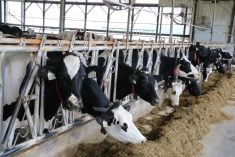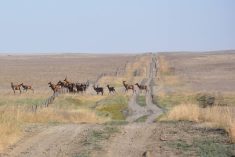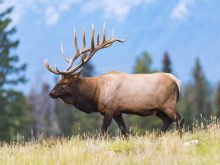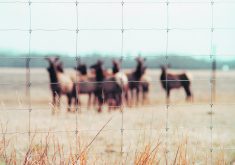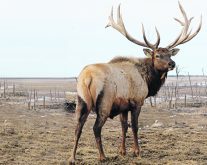NISKU, Alta. — Alberta elk farmers have lobbied the provincial government for more than 20 years to approve hunt farms, but it will take more than that, said Alberta’s agriculture minister Nate Horner.
“Politically, you need to convince more people than me. The former minister took it right to cabinet and it didn’t get far,” Horner told elk producers during their annual conference.
Two years ago, the United Conservative Party cabinet, especially Calgary UCP members, rejected the idea of fenced hunting areas when former agriculture minister Devin Dreeshan brought the proposal forward, he said.
“To be totally frank, it was quickly brought up the quotes from even Ralph Klein back in the day. I can’t remember the exact quote, but he called it an abomination. They hadn’t forgotten, the MLAs within our team from Calgary. It would take a concerted political effort to make them understand. The former minister tried very hard,” said Horner, who replaced Dreeshan.
Related stories in this issue:
In 2002, former premier Ralph Klein was unequivocal in his opposition to hunt farms when his Progressive Conservative caucus rejected the idea.
Convincing Alberta politicians that hunt farms, or cervid harvest preserves, are an important economic benefit for rural Alberta and changing minds will be a challenge, Horner told the group.
“I have had conversations with new members to cabinet but it would take a political campaign within government to understand that the benefits outweigh any perceived negative connotations.
“You need to show them they’re wrong. Maybe it is an op-ed in the paper, maybe it’s showing the media the other side. Take away their fear that this is a political bomb; that it is the right thing to do. Show the softer side of the industry. Show why it matters. Take away the concerns about quotes from 30 years ago and maybe a misunderstanding of the process. I can’t do that for you.”
Elk producer Woodrow Wilson of Paradise Valley asked if Horner understood what hunt preserves could do for Alberta and the economic importance of having hunters travel to Alberta to shoot a trophy elk.
To get top dollar for the animals, Alberta elk farmers now must send their male elk with large antlers, prized by hunters, to hunt farms in Saskatchewan or the United States.
The Alberta Elk Commission estimates producers lose $13 million a year by not allowing hunt farms in Alberta. Producers receive $1,500 to $2,200 an elk when it is sold for meat. Elk sold to hunt farms can fetch $4,000 to $10,000, or higher, depending on the elk and hunt farm.
Elk producer Wayne Balderson wondered how the government can reject the idea of hunt farms for elk producers, but remove restrictions on special licence permits that allow hunting year round of species like big-horned sheep for non-residents.
“That was a gift for the outfitters and we are just asking for the right to develop our industry. We don’t want money, we don’t want no gifts, we just want the ability. Why should it be the people of Alberta or a bunch of city folks who don’t know nothing about livestock or how to build an industry,” said Balderson of Beiseker.
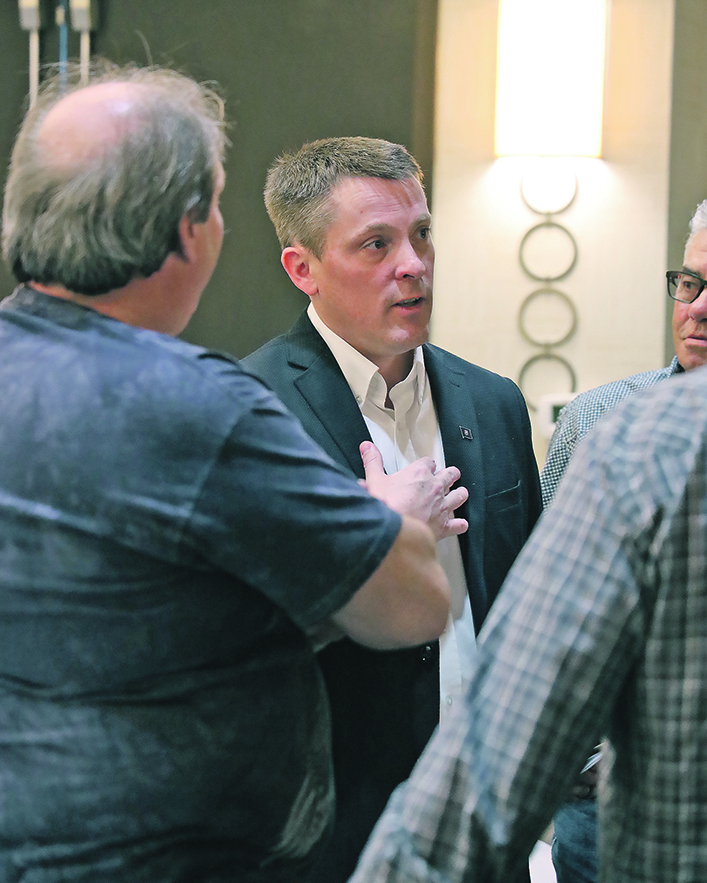
Harvey Petracek, an elk producer from Saskatchewan, asked Horner if there was a specific group, either rural or urban, where the elk industry needs to focus its attention to change the minds of government decision makers.
“Whose mind are we going to change to get this passed? This is the kind of intel that you’re going to be able to provide for us. Obviously, the environment and wildlife federations have been in our faces. In Saskatchewan, they’re always in our face. Exactly who are we up against here?” asked Petracek.
Horner recommended elk producers take a two-pronged approach to changing minds.
“In a narrow sense, focus on the people around the cabinet table, but more broadly, you are up against the connotations people are fearful of. It might be wiser to think more broadly. I have never opened up the paper and read anything about a cervid farm, the overall general perspective and what it could mean to the province or your industry.”
Allowing hunts within a fenced area will not be easy. His UCP colleagues received a lot letters from people opposed to the idea of allowing elk producers to create hunt farms, he said.
Elk producer Logan Dolan wondered how a small industry with 138 farms can find the time and money to convince 4.5 million Albertans to allow cervid harvest preserves in the province when there is such opposition.
“How much is the Alberta government going to fund us to do a (public relations) campaign because we definitely can’t afford it? To convince 50 percent of the population that this is a good idea, I don’t know if we’d ever get there,” said Dolan of Spirit River.
Horner encouraged the producers to keep lobbying government.





